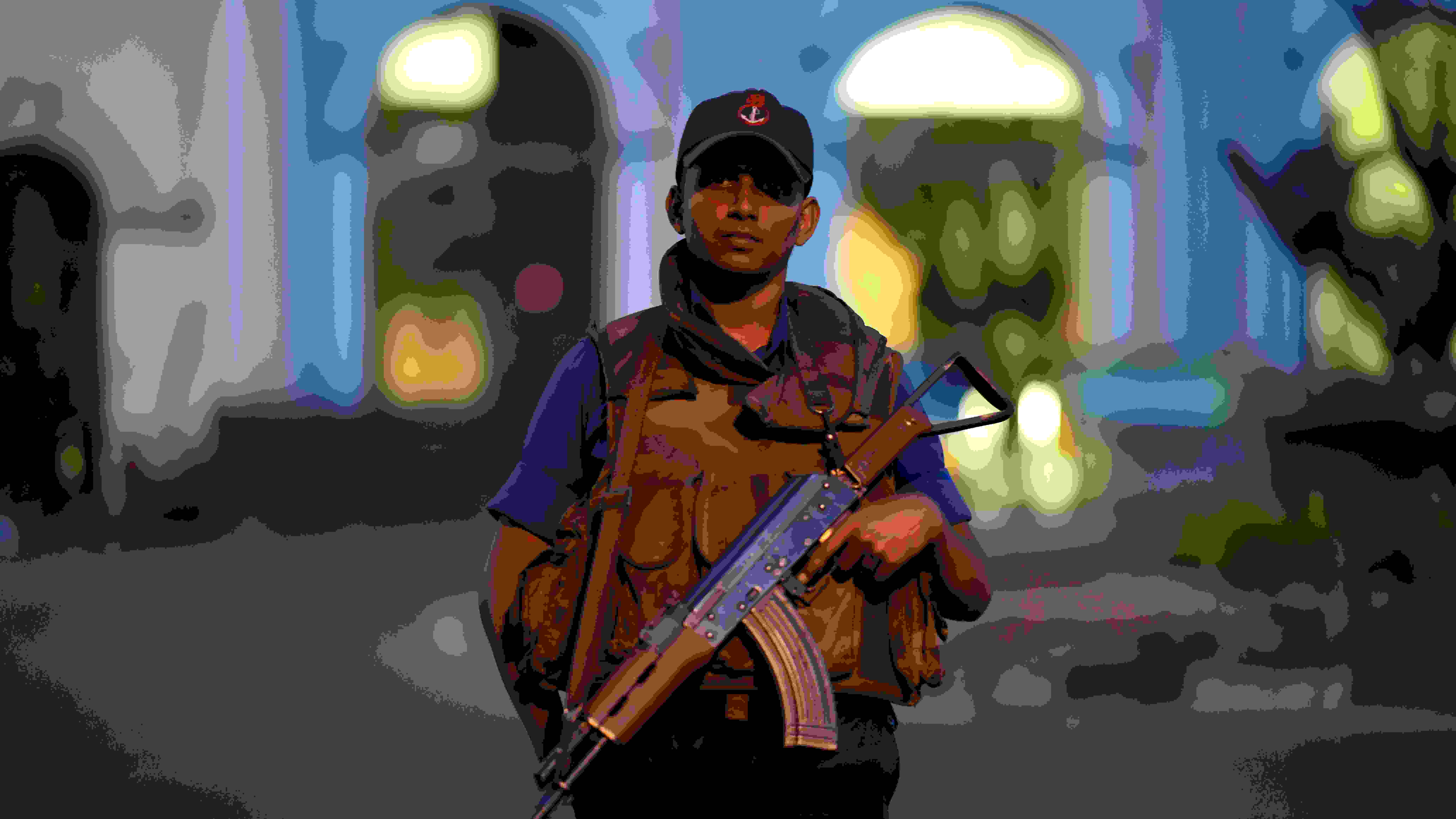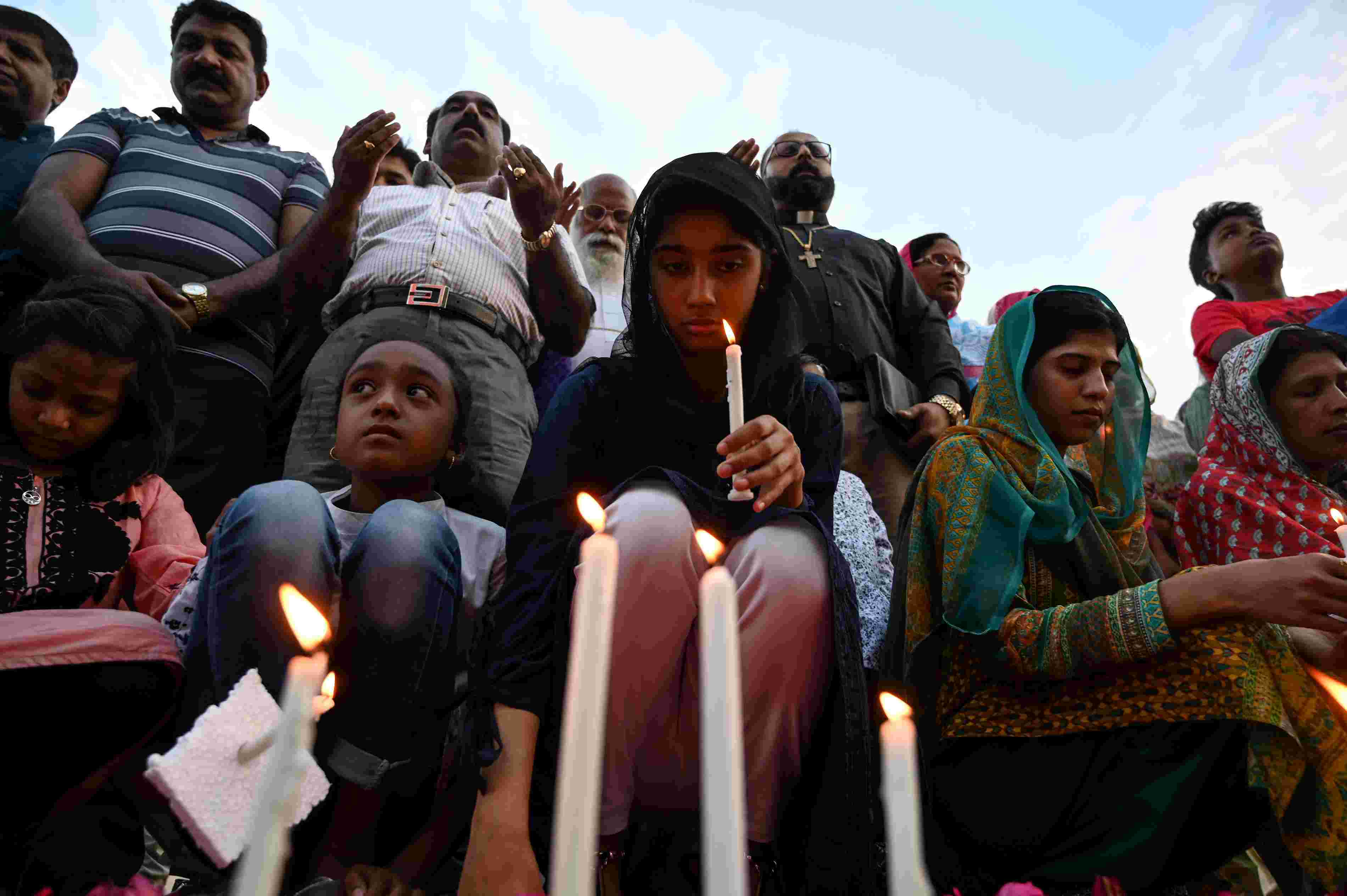
Opinion
10:50, 23-Apr-2019
How should Sri Lanka respond?
Bobby Naderi

Editor's Note: Bobby Naderi is a journalist, current affairs commentator, documentary filmmaker and member of the Writers Guild of Great Britain. The article reflects the author's opinion, and not necessarily the views of CGTN.
Chinese President Xi Jinping was among the first world leaders to send a message of condolence to his Sri Lankan counterpart Maithripala Sirisena after a series of explosions inside hotels and churches killed and wounded hundreds of people on Sunday.
No one has claimed responsibility so far for the April 21 mass murder, but police have reportedly arrested several suspects in connection with what appears to be coordinated suicide bombings across the country. The senseless violence has had widespread international media coverage as well, given the number of tourists killed.
The cowardly acts against innocent civilians are shunned and condemned under international law. They point to the viciousness of radical groups and separatists not just in the island nation but everywhere across the wider region. The radical movements and their lackeys use violence to spread fear and provoke counterattacks to divide communities.
The Sri Lankan government must recognize that it cannot eliminate the risk of these barbaric acts overnight. They may happen again because the country has been struggling with terrorism for decades. What the government can control is how it responds. Colombo must not play into the hands of radical movements, reignite sectarian disputes, and defeat itself.
It bears re-emphasizing that the whole world is behind the people of Sri Lanka and their government. A fresh armed conflict with Tamil separatists in the north, which ended in 2009, is not the answer to this long bloody end.

Pakistani people hold candles to pay tribute to the victims of the Sri Lankan blasts during a vigil in Islamabad, Pakistan, April 22, 2019. /VCG Photo
Pakistani people hold candles to pay tribute to the victims of the Sri Lankan blasts during a vigil in Islamabad, Pakistan, April 22, 2019. /VCG Photo
Revenge against radicals and militants in other parts of the country won't bring justice to the families of victims, either. The authorities shouldn't fuel anti-government sentiments, nor should they point the finger at any ethnic group or community. This will only give ammunition to their radicals to justify more barbaric acts.
China and the rest of the world have shown solidarity with Sri Lanka. They have called for coordinated efforts to restore security and stability in the country. Yet they never said this could be realized through military force or discriminative policies.
Far from it, the government needs all-inclusive socio-economic programs to go beyond and implement them to defeat extremist views that exist in Sri Lanka. The government shouldn't single out any ethnic or religious community for brutal police and military conducts. State discrimination and retaliation is not a sign of strength; it is a sign of weakness.
It will be bad policy for the government to turn violent or call for a militaristic response to the Sunday's terror attack. To argue that a military response will improve national security is a false line of logic. All ill-thought-through reactions must be avoided at all costs, including calls for military force against any targeted region or community.
To defeat those who strike terror and sow discord would require collective efforts on the part of all political groups and communities in Sri Lanka. They must come together to make sure that such appalling acts of violence are not repeated under any pretext.
They must support their government in its peaceful campaign against radicalism, militancy and separatism. It's the surest way to defeat those who indulge in terrorism and extremism in the country.
(If you want to contribute and have specific expertise, please contact us at opinions@cgtn.com.)

SITEMAP
Copyright © 2018 CGTN. Beijing ICP prepared NO.16065310-3
Copyright © 2018 CGTN. Beijing ICP prepared NO.16065310-3